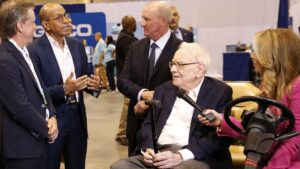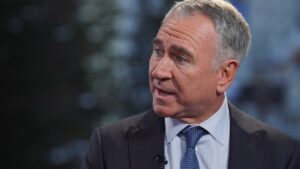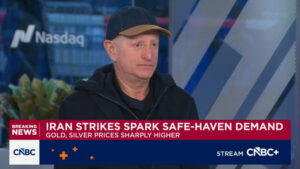Delta worries, labor shortages and fading Washington stimulus — it’s enough to cast a chill on the U.S. economy this fall.
A bevy of Wall Street forecasters chopped their targets for U.S. growth after a poor U.S. jobs report for August. The government on Friday said the economy gained 235,000 new jobs last month — just one-third of what investors were expecting.
Goldman Sachs, Morgan Stanley, BMO Capital Markets, TD Securities and other firms cut their forecasts — some by more than half.
An economy that was expected to grow at a sizzling 7% annual pace from July through September is now seen expanding at a more modest 3% to 3.5% clip, Wall Street
DJIA,
forecasts show.
The tepid pace of hiring naturally shone a spotlight on the damage delta is doing to the economy.
The companies that have been hurt the worst during the pandemic — restaurants, hotels, theaters and so forth — added zero new jobs in August. They had created an average of 364,000 new jobs a month since May.
Evidence of a slowdown was found in declining dinner reservations and hotel bookings. The number of people flying on planes also declined. Americans appeared to be more worried about venturing out and being in large crowds.
“The coronavirus situation has deteriorated over the last couple of months,” Gold Sachs noted.
A possibly even bigger factor in the U.S. employment report is a lack of people willing to go back to work.
Businesses have been complaining for months that they can’t find workers and the August jobs report seemed to underscore the problem. The percentage of people in the labor force either working or looking for a job has been static for the past year.
Read: Delta blamed for poor jobs report, but too few people willing to work might be a bigger problem
It’s not just labor shortages, either.
Companies are struggling to obtain the parts and materials they need to produce enough goods and services to satisfy the surge in demand. Automakers in particular have had to cut back production owing to a global shortage of computer chips.
The result is that consumers are spending less because of delta, and even when they want to buy a new car or other goods, they are having trouble finding what they want.
Fading government stimulus could also weigh more heavily on the economy in the second half of the year.
Most of the stimulus cash has been doled out already, economists point out, and a multi-billion dollar infrastructure bill now before Congress is unlikely to shovel much money into the economy anytime soon. Most public works take a long time to plan and get underway.
So all doom and gloom, right? No. The delta wave appears to be cresting, for one thing. The states that experienced the biggest outbreaks early are now seeing cases on the decline.
Most consumers and businesses, what’s more, have adapted to the virus. So has government. Hardly any are putting in place the sort of strict measures that hurt the economy last year.
Businesses are also expected to keep hiring and more people will probably go back to work after the expiration on Monday of extra federal benefits for the unemployed. That will help ease — but not eliminate — the labor shortage.
At the same time, parts and supply shortages should also fade over time and release a big stranglehold on businesses.
“The bottom line is the expansion continues to progress, albeit at a slower pace,” Morgan Stanley economists predicted.
This post was originally published on Market Watch






